
Oxford: The City of Dreaming Spires
Welcome to Oxford, a city where history, academia, and stunning architecture converge. Known as the 'City of Dreaming Spires,' Oxford is home to the world-renowned University of Oxford, one of the oldest and most prestigious universities. As you walk through its cobbled streets, you'll be transported back in time, surrounded by centuries-old colleges, libraries, and chapels that have inspired countless scholars and writers. Beyond its academic prestige, Oxford offers a rich cultural experience. Visit the Ashmolean Museum, the oldest public museum in the world, and marvel at its diverse collection of art and antiquities. Take a leisurely punt down the River Cherwell or the River Thames, and enjoy the picturesque views of the city's lush meadows and historic buildings. Oxford is not just about history and academia; it also boasts vibrant markets, charming cafes, and a lively arts scene. Explore the Covered Market for unique local produce and crafts, or catch a performance at the Sheldonian Theatre. Whether you're a history buff, an art lover, or simply looking to soak in the city's unique atmosphere, Oxford promises an unforgettable experience.
Local tips in Oxford
- Visit the colleges early in the morning to avoid crowds and get the best photos.
- Punting is a must-do activity; consider hiring a guided punt if you're unfamiliar with the technique.
- The Covered Market is a great spot for local souvenirs, fresh produce, and unique eats.
- Wear comfortable shoes; Oxford's main attractions are best explored on foot.
- Don't miss a visit to the Bodleian Library, one of the oldest libraries in Europe.
Oxford: The City of Dreaming Spires
Welcome to Oxford, a city where history, academia, and stunning architecture converge. Known as the 'City of Dreaming Spires,' Oxford is home to the world-renowned University of Oxford, one of the oldest and most prestigious universities. As you walk through its cobbled streets, you'll be transported back in time, surrounded by centuries-old colleges, libraries, and chapels that have inspired countless scholars and writers. Beyond its academic prestige, Oxford offers a rich cultural experience. Visit the Ashmolean Museum, the oldest public museum in the world, and marvel at its diverse collection of art and antiquities. Take a leisurely punt down the River Cherwell or the River Thames, and enjoy the picturesque views of the city's lush meadows and historic buildings. Oxford is not just about history and academia; it also boasts vibrant markets, charming cafes, and a lively arts scene. Explore the Covered Market for unique local produce and crafts, or catch a performance at the Sheldonian Theatre. Whether you're a history buff, an art lover, or simply looking to soak in the city's unique atmosphere, Oxford promises an unforgettable experience.
When is the best time to go to Oxford?
Iconic landmarks you can’t miss
Highclere Castle
The real Downton Abbey: a thousand years of history, Egyptian treasures, and aristocratic grandeur in the Hampshire countryside.
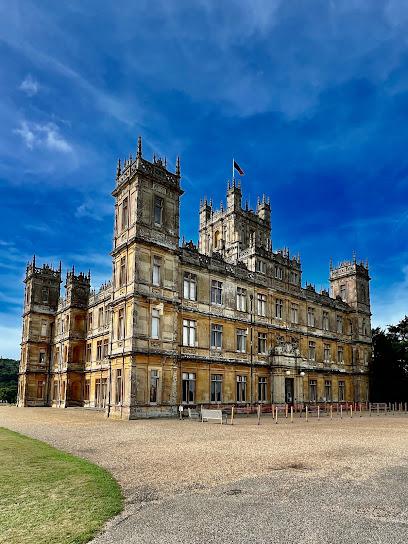
Christ Church Cathedral
Explore Oxford’s historic Christ Church Cathedral, a stunning blend of medieval architecture, rich heritage, and magical Harry Potter connections.
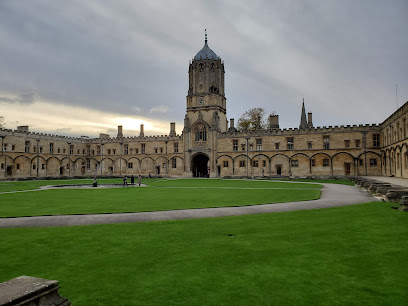
Carfax Tower
Historic 12th-century tower at Oxford’s crossroads with panoramic city views and a timeless symbol of civic heritage.

Radcliffe Camera
A majestic 18th-century neoclassical rotunda, the Radcliffe Camera is Oxford’s iconic library landmark and a symbol of academic heritage.
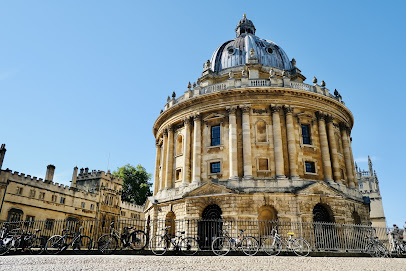
Martyrs' Memorial
A towering Gothic Revival monument in Oxford honoring three Reformation martyrs who stood firm in faith during religious upheaval.
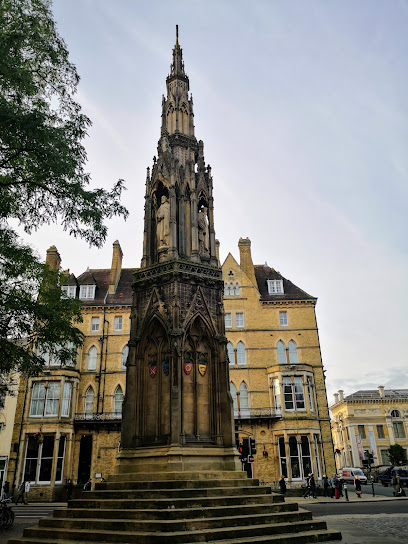
Folly Bridge
Historic stone bridge over the Thames in Oxford, blending rich medieval heritage with scenic river views and literary lore.
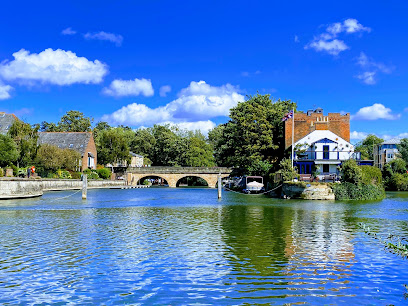
Oxford Town Hall
Historic Victorian Gothic landmark at Oxford’s heart, blending civic governance, cultural heritage, and vibrant community events.

The Queen's College
Baroque splendour on Oxford's High Street—a historic college of architectural excellence and academic prestige.
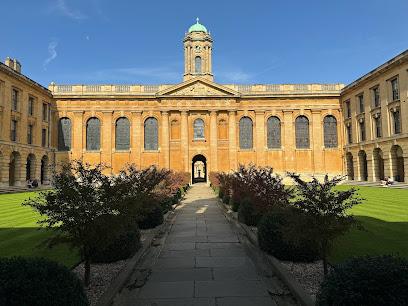
Tom Tower
Historic Gothic bell tower by Christopher Wren at Christ Church, home to the iconic Great Tom bell and a symbol of Oxford’s academic heritage.
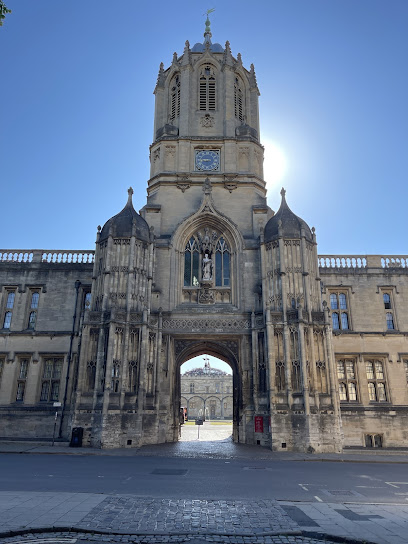
Brasenose College
Historic Oxford college founded in 1509, renowned for its medieval architecture, vibrant student life, and prestigious academic tradition.
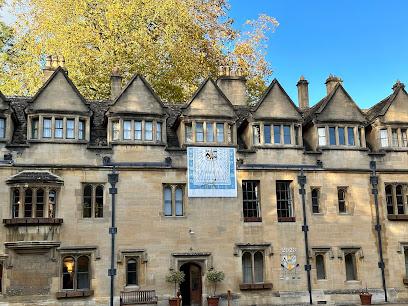
Clarendon Building
An iconic neoclassical landmark in Oxford’s academic heart, blending historic grandeur with university tradition on Broad Street.
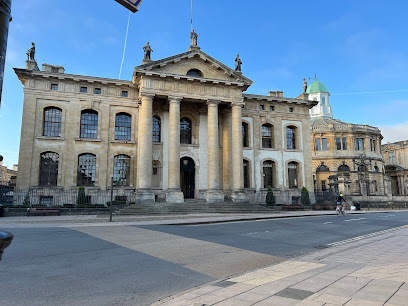
RAF Bicester
Explore RAF Bicester, the UK’s finest preserved interwar bomber airfield, rich in aviation heritage and wartime training legacy.

Oxford Tours UK
Discover Oxford’s rich history and literary heritage through personalized, expert-led walking tours in the city’s vibrant heart.
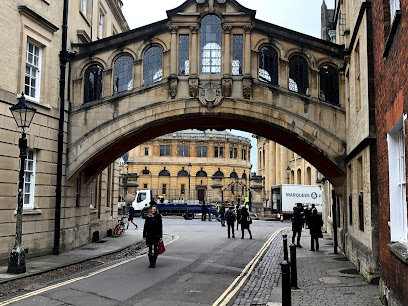
Blue Plaque: J.R.R. Tolkien
The Oxford home where Tolkien wrote The Hobbit and The Lord of the Rings, marked by a historic blue plaque.
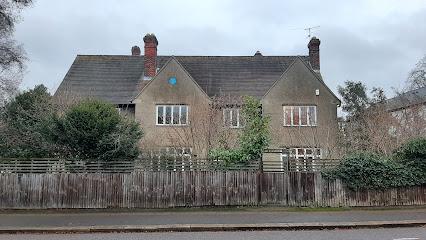
Willow Tree
Oxford's iconic riverside willow—a solitary natural landmark where history, romance, and tranquillity converge.
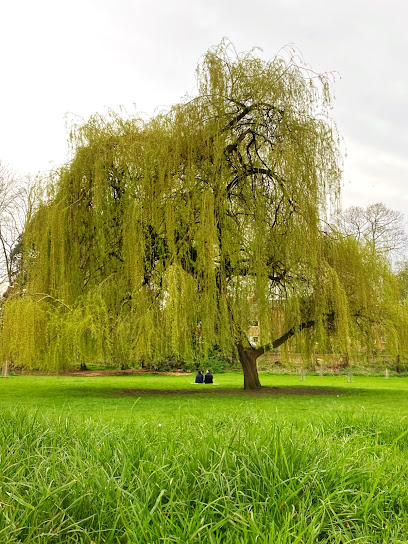
Unmissable attractions to see
Bicester Village
Luxury designer outlet village with 150+ boutiques, up to 70% off, and festive charm near Oxford.
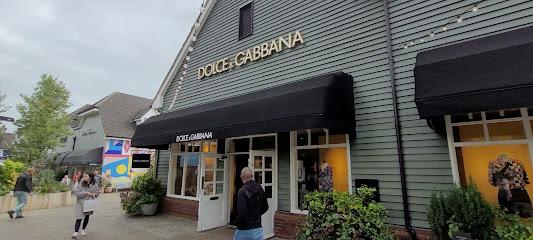
Blenheim Palace
Explore Blenheim Palace’s grand Baroque architecture, historic gardens, and immersive experiences in England’s iconic UNESCO World Heritage estate.
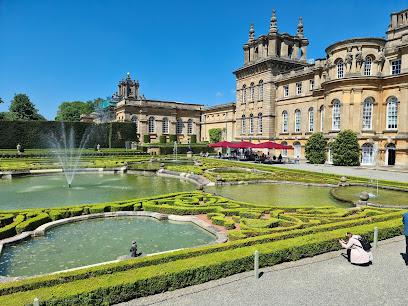
Bletchley Park
Explore the legendary estate where WWII codebreakers, including Alan Turing, cracked enemy ciphers and shaped modern computing.
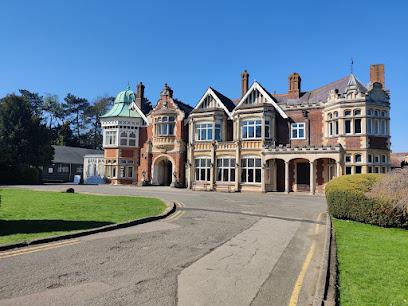
Xscape Milton Keynes
A vibrant indoor playground in Milton Keynes offering skiing, skydiving, trampolining, bowling, cinema, dining, and endless family fun all year round.
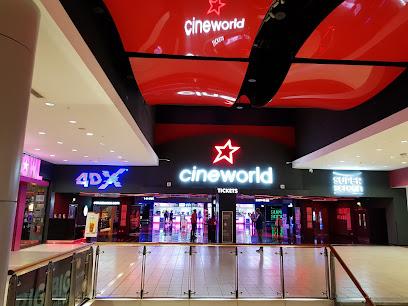
Oxford University Museum of Natural History
Explore Earth's natural wonders in a breathtaking neo-Gothic museum, home to iconic dinosaurs, rare fossils, and vibrant live exhibits in Oxford.
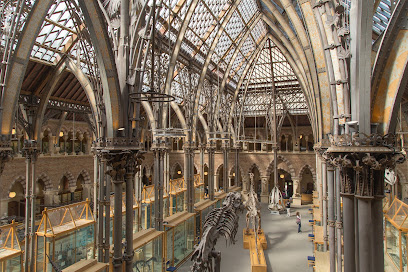
Ashmolean Museum
Explore centuries of art and archaeology at the Ashmolean, Oxford’s oldest museum with free admission and world-class collections.
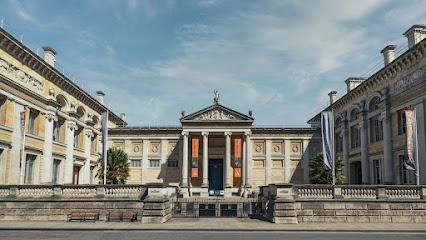
Chilterns National Landscape
Explore the tranquil, rolling chalk hills and ancient woodlands of the Chilterns National Landscape—England’s celebrated countryside just northwest of London.
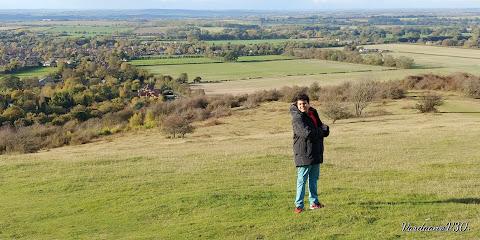
The Covered Market
Discover Oxford’s historic Covered Market: a vibrant arcade of independent shops, fresh produce, and unique local crafts beneath an iconic 18th-century roof.
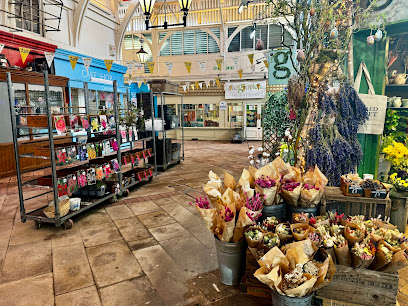
Waddesdon Manor
Explore the grandeur of Waddesdon Manor, a French Renaissance château with stunning gardens, rich art collections, and vibrant cultural events in Buckinghamshire.
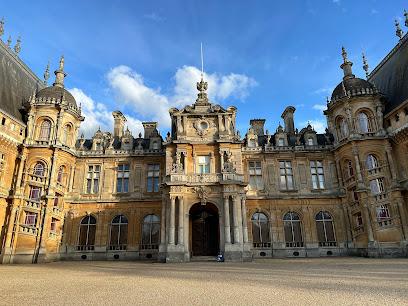
University of Oxford
Explore the University of Oxford, a timeless blend of historic colleges, stunning architecture, and world-class scholarship in England’s iconic city of dreaming spires.
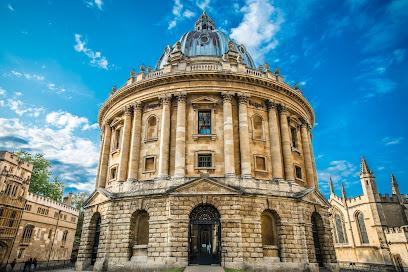
Oxford Castle & Prison
Step into a millennium of history at Oxford Castle & Prison, where medieval towers, eerie cells, and captivating stories await.
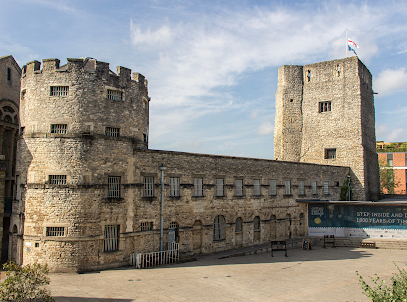
Broadway Tower
An enchanting 18th-century folly atop the Cotswolds offering sweeping views, rich history, and a unique blend of art and nature.
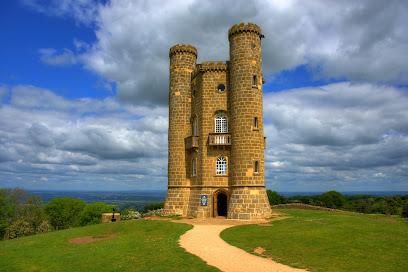
Oxford Botanic Garden
Explore the UK’s oldest botanic garden, a compact urban oasis with 5,000+ plant species, historic walled gardens, and immersive global glasshouses.

National Trust - Hidcote
Discover the enchanting Arts and Crafts garden rooms and captivating sculptures at National Trust’s Hidcote Manor Garden in the heart of the Cotswolds.
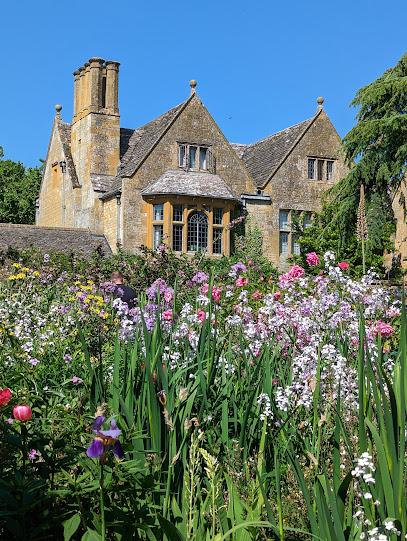
The Trout Inn
Historic riverside gastropub in Oxford offering seasonal British dishes, scenic terrace, and a charming garden with a roaming peacock.
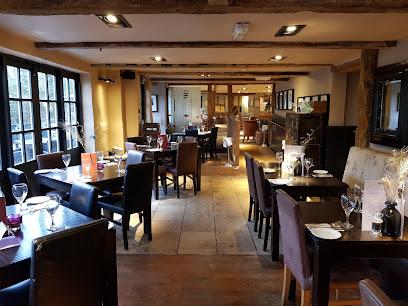
Essential places to dine
Turtle Bay Oxford
Experience the vibrant flavors and rhythms of the Caribbean in the heart of historic Oxford with bold dishes and tropical cocktails.
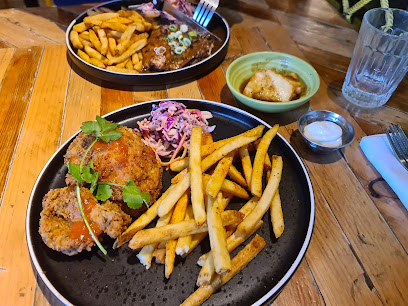
Banana Tree Oxford
Vibrant Pan-Asian flavors and extensive vegan options in Oxford's lively George Street.
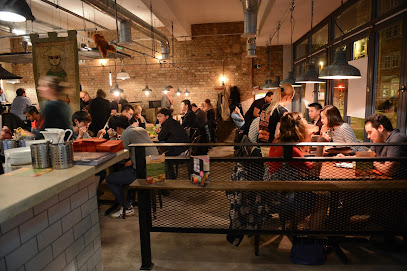
The Head of the River, Oxford
Charming riverside pub, restaurant, and hotel at Oxford’s Folly Bridge, blending British tradition with contemporary dining and cozy waterside stays.
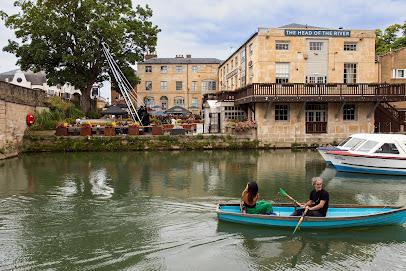
The Perch
A charming thatched pub by Oxford’s Port Meadow, blending historic ambiance with hearty British fare and riverside tranquility.
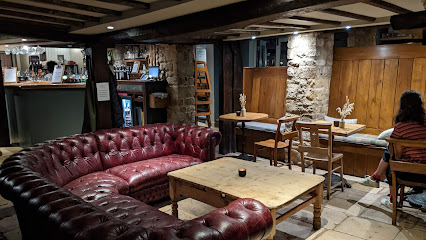
Dirty Bones Oxford
Savor bold American comfort food and creative cocktails in a lively Oxford setting inspired by New York City’s vibrant spirit.
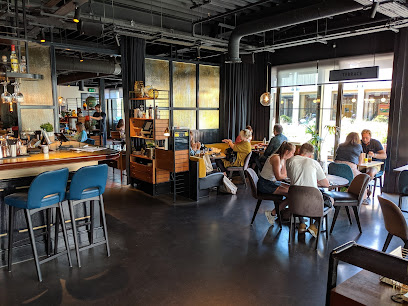
Victors Oxford
Rooftop luxury with cathedral views, Asian cuisine, and craft cocktails beneath wisteria trees.

Red Lion Oxford
Historic Oxford gastropub blending traditional British hospitality with contemporary dining in the city centre.
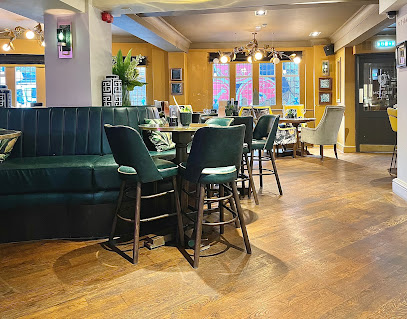
Antep Kitchen
Experience authentic Turkish cuisine with generous portions and warm hospitality in Oxford’s vibrant Cowley Road neighborhood.
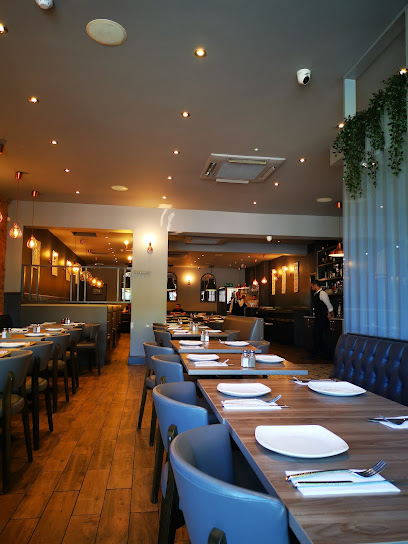
Thaikhun
Experience authentic Thai street food in a vibrant, colorful setting with generous portions and a welcoming atmosphere in Oxford’s city centre.
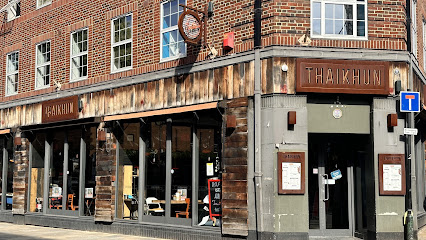
Browns Oxford
Classic British brasserie and bar on Woodstock Road offering hearty meals, lively atmosphere, and timeless Oxford charm.
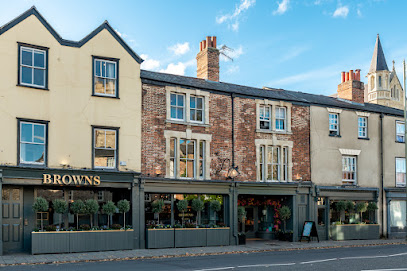
The White Rabbit
A lively Oxford pub serving exceptional thin-crust pizzas and local ales in a vibrant, quirky setting loved by students and locals alike.
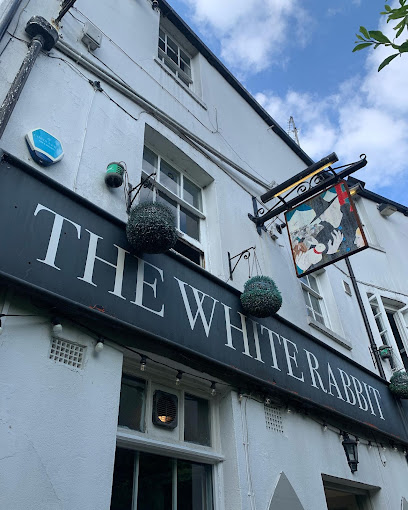
Comptoir Libanais Oxford
Experience vibrant Lebanese flavors and warm hospitality in the heart of Oxford’s Westgate Shopping Centre.

The Ivy Oxford Brasserie
Elegant British brasserie on Oxford’s High Street, blending art deco charm with impeccable service and a comforting, creative menu.
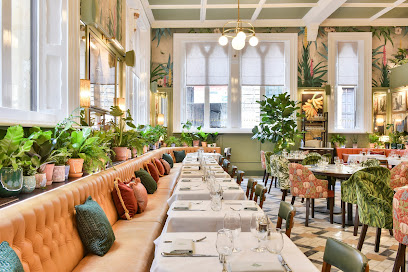
Bella Italia - Oxford
Experience authentic Italian flavors with warm service and a rustic ambiance in Oxford’s lively George Street.
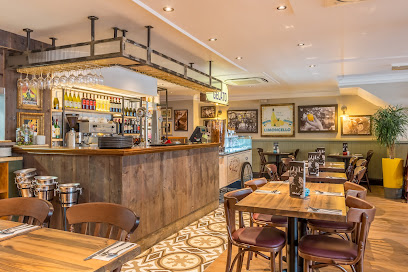
Pierre Victoire
Authentic French bistro in Oxford since 1996, offering classic cuisine, prix fixe menus, and a warm, intimate atmosphere with excellent value.
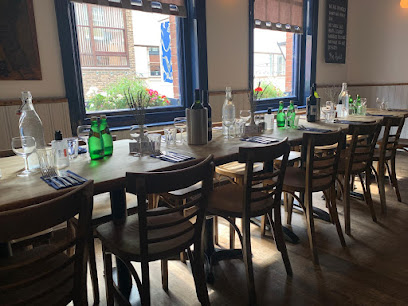
Markets, malls and hidden boutiques
Westgate Oxford
Westgate Oxford offers a vibrant mix of over 100 shops, diverse dining, and lively events in a modern setting at Oxford’s historic heart.
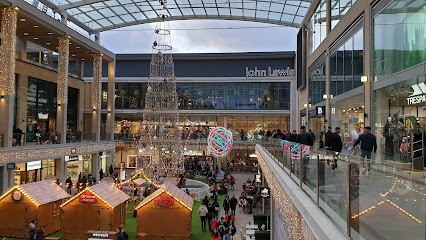
Primark
Affordable fashion and lifestyle essentials for all ages in Oxford's premier shopping destination.

John Lewis & Partners
A spacious, three‑floor department store in Oxford’s Westgate Centre, offering fashion, beauty, home, and technology with helpful service and a relaxed atmosphere.
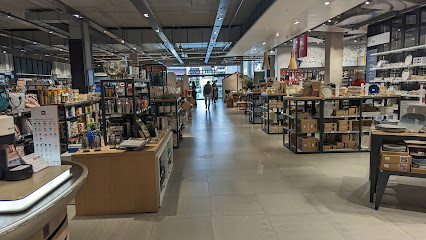
Flying Tiger Copenhagen
Discover quirky Danish design and colorful everyday essentials at Flying Tiger Copenhagen, Oxford’s lively variety store on Magdalen Street.
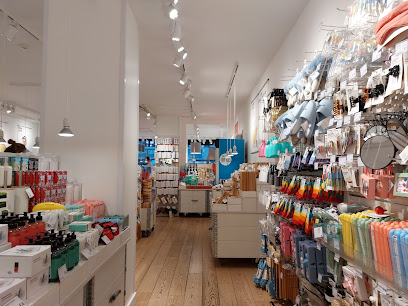
Oxford University Press Bookshop
Discover the historic Oxford University Press Bookshop, a tranquil literary haven on Oxford’s High Street showcasing centuries of academic publishing heritage.
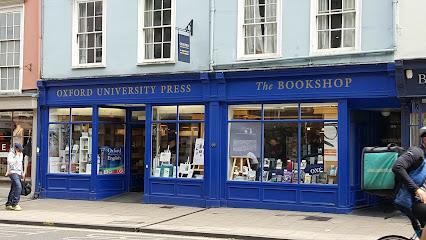
Broad Canvas
Oxford’s trusted art and craft hub since 1981, offering expert advice and quality supplies for all creative journeys.
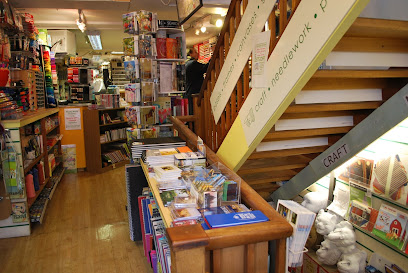
Objects of Use
Discover expertly crafted, sustainable household tools and unique gifts from around the world in Oxford’s Objects of Use.
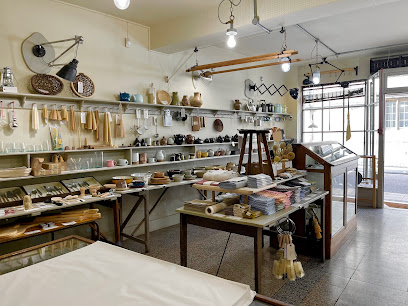
Miniso UK
Discover affordable, stylish lifestyle treasures and themed collectibles at Miniso UK in Oxford’s vibrant Westgate Shopping Centre.
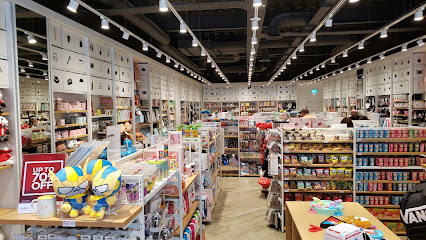
Oliver Bonas
Discover unique fashion and homeware with a joyful British spirit at Oliver Bonas in Oxford’s Westgate Shopping Centre.
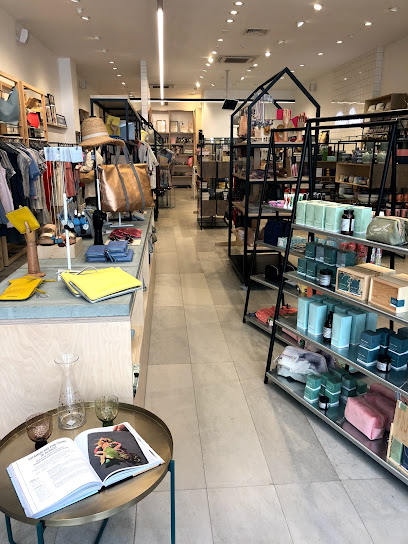
House of Wonders
Discover Oxford’s enchanting Harry Potter gift shop with authentic wands, robes, and magical memorabilia in a charming, affordable setting.
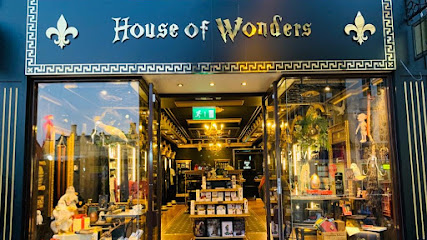
Menkind
Discover quirky gifts and gadgets for all ages at Menkind, Oxford’s vibrant treasure trove in the Westgate Centre.
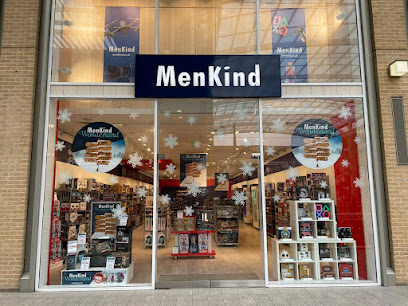
Crystal Spirit Emporium
Discover a world of crystals, minerals, and artisanal gifts in Oxford’s historic Covered Market at Crystal Spirit Emporium.
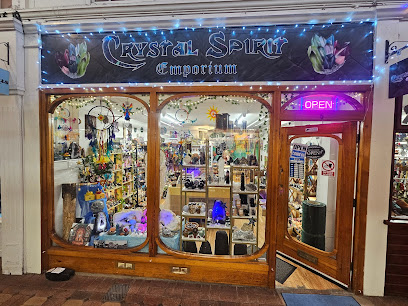
Babylon Trading
Discover eclectic home and gift treasures in a charming Grade 2 listed boutique on Oxford’s historic High Street.
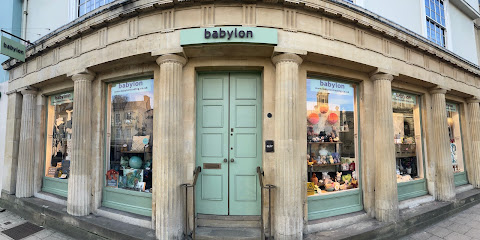
Cool Britannia
Discover authentic British souvenirs and a unique vintage photo studio experience in the heart of Oxford’s vibrant Broad Street.
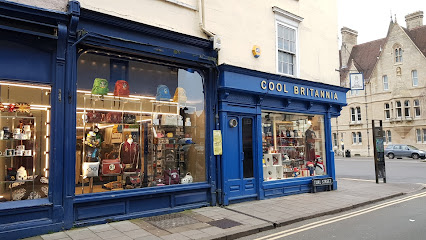
Anthropologie
A beautifully styled boutique on Oxford’s High Street, offering women’s fashion, accessories, and unique home décor in a relaxed, bohemian-chic atmosphere.
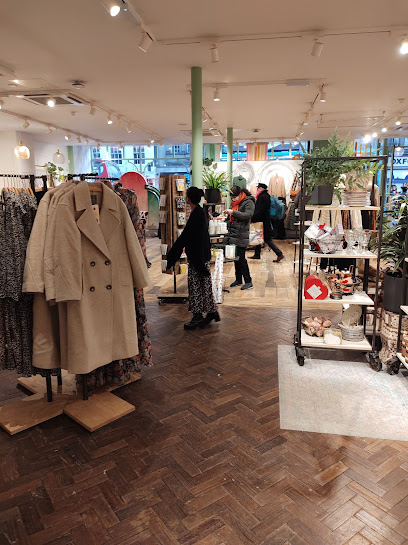
Essential bars & hidden hideouts
Turf Tavern
Discover Oxford’s hidden gem: a 600-year-old historic pub famed for its cozy charm, legendary patrons, and timeless atmosphere.
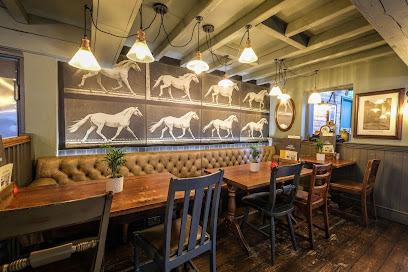
Slug & Lettuce - Oxford
Vibrant cocktail bar and restaurant set within historic Oxford Castle, offering stylish drinks, global cuisine, and lively brunches in a chic, welcoming atmosphere.
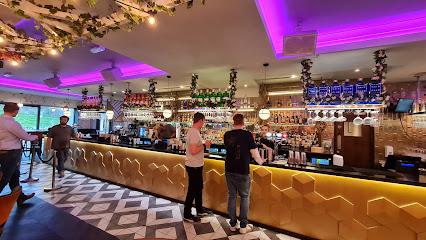
The Bear Inn, Oxford
Oxford’s oldest pub since 1242, The Bear Inn charms with historic ties, cozy low ceilings, lively music, and a welcoming garden retreat.
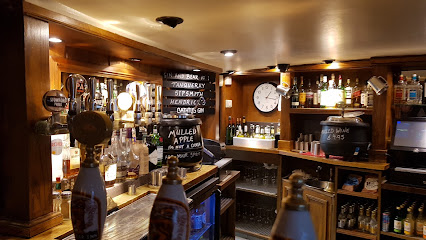
King's Arms, Oxford
Oxford’s oldest pub since 1607, famed for its literary heritage, academic ties, and ghostly whispers in a historic setting.
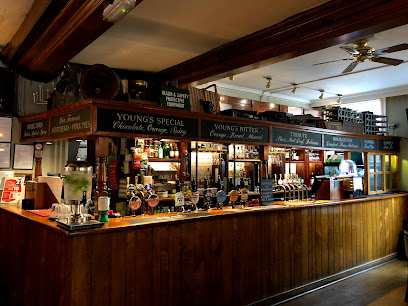
The Alchemist Oxford
Experience Oxford’s premier theatrical cocktail bar and restaurant, blending creative drinks with innovative American-inspired cuisine in a vibrant setting.
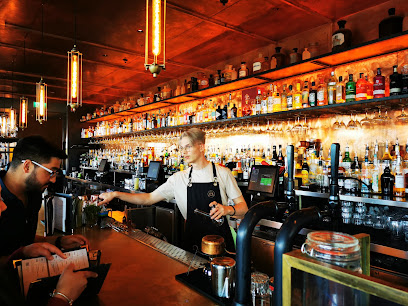
The Varsity Club
Experience Oxford’s best rooftop views and vibrant nightlife at The Varsity Club, a stylish multi-floor venue blending cocktails, music, and cityscape charm.
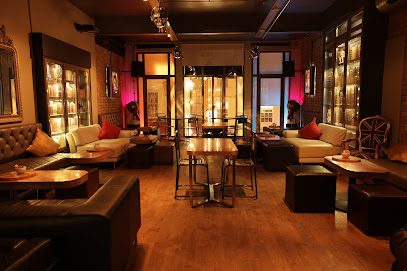
The Old Bookbinders Ale House
A cozy 19th-century Oxford pub blending traditional ales with authentic French bistro charm in the heart of Jericho.
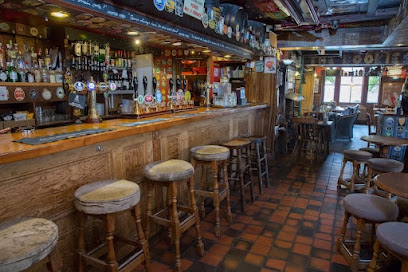
All Bar One Oxford
Lively and stylish wine bar on Oxford’s High Street, perfect for drinks, sharing plates, and social gatherings in a vibrant city setting.
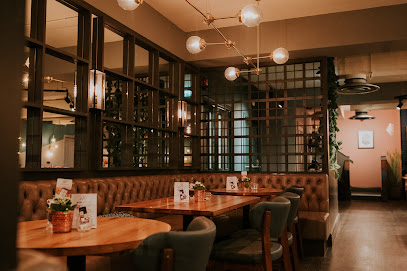
The Oxford Retreat
Discover the charm of The Oxford Retreat, a cozy pub in Oxford offering delicious food and a great selection of drinks in a friendly atmosphere.
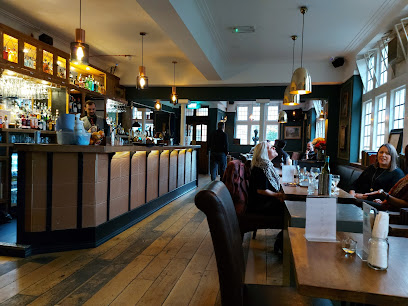
Lamb and Flag
Historic Oxford pub beloved by Tolkien and the Inklings, offering local ales and a vibrant community atmosphere since 1613.
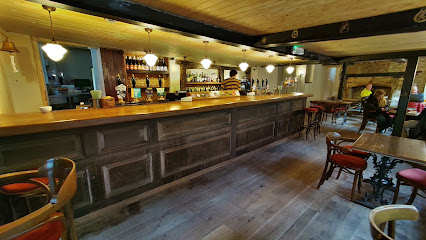
The Lighthouse
A stylish riverside cocktail bar and tapas restaurant blending classic charm with modern flair in the heart of Oxford.
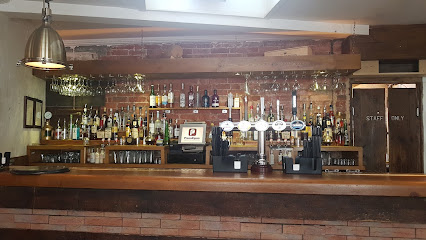
Sandy's Piano Bar
Experience the magic of live music at Sandy's Piano Bar in Oxford, where every night is a celebration of talent and good times.
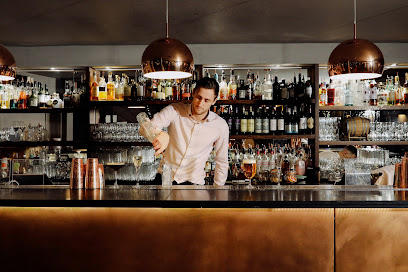
The Duke Of Cambridge
A stylish Oxford bar blending classic pub warmth with expert cocktails in a lively, welcoming atmosphere.
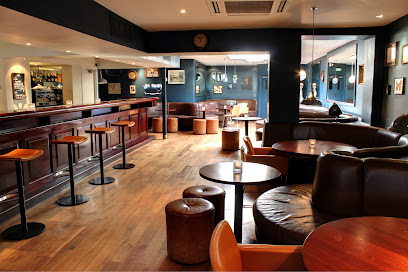
Hanks Bar
Experience Oxford’s vibrant nightlife at Hanks Bar, where classic American style meets energetic dance floors and expertly crafted cocktails.
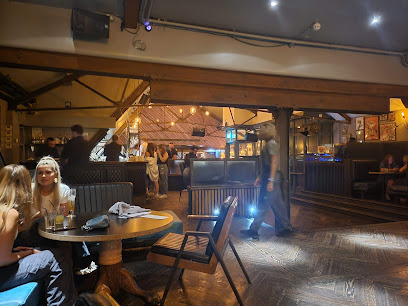
Local Phrases
-
- HelloHello
[heh-loh] - GoodbyeGoodbye
[guhd-bye] - YesYes
[yehs] - NoNo
[noh] - Please/You're welcomePlease/You're welcome
[pleez/yoor wel-kum] - Thank youThank you
[thank yoo] - Excuse me/SorryExcuse me/Sorry
[ik-skewz me/sor-ee] - How are you?How are you?
[hao ar yoo] - Fine. And you?Fine. And you?
[fain. and yoo?] - Do you speak English?Do you speak English?
[doo yoo speek ing-glish?] - I don't understandI don't understand
[ai dohnt un-der-stand]
- HelloHello
-
- I'd like to see the menu, pleaseI'd like to see the menu, please
[ai'd laik tu si dhe menyoo, pleez] - I don't eat meatI don't eat meat
[ai dohnt eet meet] - Cheers!Cheers!
[cheerz] - I would like to pay, pleaseI would like to pay, please
[ai wood laik tu pei, pleez]
- I'd like to see the menu, pleaseI'd like to see the menu, please
-
- Help!Help!
[help] - Go away!Go away!
[goh uh-wey] - Call the Police!Call the Police!
[kawl dhe puh-leece] - Call a doctor!Call a doctor!
[kawl uh dok-ter] - I'm lostI'm lost
[ai'm lost] - I'm illI'm ill
[ai'm il]
- Help!Help!
-
- I'd like to buy...I'd like to buy...
[ai'd laik tu bai] - I'm just lookingI'm just looking
[ai'm jehst look-ing] - How much is it?How much is it?
[hao much iz it?] - That's too expensiveThat's too expensive
[dhatz too ik-spensiv] - Can you lower the price?Can you lower the price?
[kan yoo loh-er dhe prais?]
- I'd like to buy...I'd like to buy...
-
- What time is it?What time is it?
[wot taim iz it?] - It's one o'clockIt's one o'clock
[its wun uh-klok] - Half past (10)Half past (10)
[haf past (ten)] - MorningMorning
[mawr-ning] - AfternoonAfternoon
[af-ter-noon] - EveningEvening
[eev-ning] - YesterdayYesterday
[yes-ter-day] - TodayToday
[tuh-day] - TomorrowTomorrow
[toh-mor-oh] - 11
[wun] - 22
[too] - 33
[tree] - 44
[for] - 55
[fiv] - 66
[siks] - 77
[sev-en] - 88
[eyt] - 99
[nain] - 1010
[ten]
- What time is it?What time is it?
-
- Where's a/the...?Where's a/the...?
[wairz uh/the] - What's the address?What's the address?
[wots dhe uh-dres] - Can you show me (on the map)?Can you show me (on the map)?
[kan yoo sho mi (on dhe map)?] - When's the next (bus)?When's the next (bus)?
[wenz dhe nekst (bus)?] - A ticket (to ....)A ticket (to ....)
[uh tik-et (tu ....)]
- Where's a/the...?Where's a/the...?
History of Oxford
-
Oxford University, one of the oldest and most prestigious universities in the world, traces its origins back to the late 11th century. Teaching existed in some form in 1096 and developed rapidly from 1167 when Henry II banned English students from attending the University of Paris.
-
In 1555, during the reign of Mary I, three Protestant bishops, Hugh Latimer, Nicholas Ridley, and Thomas Cranmer, were tried for heresy and burned at the stake in Oxford. The location where they were executed is now marked by the Martyrs' Memorial, a significant historical site in the city.
-
Established in 1602, the Bodleian Library is one of the oldest libraries in Europe and the main research library of the University of Oxford. It holds over 13 million printed items and is renowned for its vast collections and historical significance.
-
During the English Civil War (1642-1651), Oxford served as the Royalist capital. King Charles I made the city his headquarters, and Christ Church College became his residence. The city was a focal point of military and political activity during this tumultuous period.
-
Completed in 1749, the Radcliffe Camera is an iconic neoclassical building in Oxford. Originally built to house the Radcliffe Science Library, it now serves as a reading room for the Bodleian Library. Its distinctive architecture makes it one of Oxford's most photographed landmarks.
-
Founded in 1683, the Ashmolean Museum is the world's first university museum. It houses a diverse collection of art and antiquities, ranging from Egyptian mummies to contemporary art. The museum plays a crucial role in Oxford's cultural and educational life.
-
In the 19th century, the Oxford Movement was a significant religious development within the Church of England, advocating for a return to the traditional liturgy and practices of the early Church. Leaders like John Henry Newman and Edward Bouverie Pusey were key figures in this movement, which left a lasting impact on Anglican theology.
-
During World War II, Oxford was spared from heavy bombing due to its historical and academic significance. The city played a crucial role as a center for military planning and as a safe haven for refugees and academics displaced by the war.
-
Completed in 1790, the Oxford Canal was an important waterway for trade and transportation, connecting Oxford to Coventry. It played a significant role in the city's economic development during the Industrial Revolution and remains a picturesque feature of the landscape.
-
Today, Oxford is a vibrant city that seamlessly blends ancient traditions with modern innovations. It is a hub of academia, culture, and technology, attracting visitors from around the globe to its historic colleges, museums, and thriving arts scene.
Oxford Essentials
-
Oxford is well-connected and easily accessible from various parts of the United Kingdom and beyond. The nearest major airport is London Heathrow, approximately 50 miles (80 km) away. From Heathrow, you can take the direct bus service, The Airline, which operates frequently to Oxford. Alternatively, you can take a train from London Paddington Station to Oxford, which takes around an hour. If you are driving, Oxford is accessible via the M40 motorway.
-
Oxford has an efficient public transportation system. The city buses, operated by the Oxford Bus Company and Stagecoach, are reliable and cover most parts of the city. For short distances, cycling is a popular option, with many bike rental services available. Taxis and ride-sharing services like Uber are also readily available. If you prefer walking, the city center is compact and pedestrian-friendly, with many attractions within walking distance.
-
The official currency in the United Kingdom is the British Pound Sterling (GBP). Credit and debit cards are widely accepted in Oxford, including contactless payments. ATMs are plentiful throughout the city. While many establishments accept card payments, it is advisable to carry some cash for smaller businesses, local markets, and bus fares.
-
Oxford is generally a safe city for tourists. However, like any popular tourist destination, it is important to stay vigilant. Avoid walking alone at night in poorly-lit areas and be cautious with your belongings in crowded places. Some areas with higher crime rates include parts of Cowley and Blackbird Leys, so exercise increased caution if visiting these neighborhoods. Always use well-lit and busy routes, especially at night.
-
In case of emergency, dial 999 for police, fire, or medical assistance. For non-emergency medical issues, you can visit the John Radcliffe Hospital. Pharmacies are available throughout the city for minor health concerns. It is recommended to have travel insurance that covers medical emergencies. The Oxford police station is located at St Aldate's for any legal or safety concerns.
-
Fashion: Do dress comfortably but smartly, especially if you plan to visit university colleges or dine in nicer restaurants. Avoid overly casual or revealing clothing. Religion: Do be respectful in religious sites. Many churches and chapels request modest attire and quiet behavior. Public Transport: Do have exact change or an appropriate travel card for bus fares. Don't eat or drink on public transport. Greetings: Do greet people with a polite 'Hello' or 'Good day'. Handshakes are common in formal settings. Eating & Drinking: Do try local dishes and enjoy the variety of international cuisines available. Don't forget to tip around 10-15% at restaurants if service is not included.
-
To experience Oxford like a local, visit the Covered Market for unique shops and tasty treats. Take a leisurely punt on the River Cherwell or Thames for a quintessential Oxford experience. Attend a public lecture or event at one of the university colleges for an intellectual treat. Explore the Botanic Garden, the oldest in the UK, for a peaceful retreat. For a more immersive experience, take a walking tour to learn about the city's rich history and its famous residents.
Nearby Cities to Oxford
-
Things To Do in Windsor
-
Things To Do in Stratford-upon-Avon
-
Things To Do in London
-
Things To Do in Bath
-
Things To Do in Birmingham
-
Things To Do in Bristol
-
Things To Do in Cambridge
-
Things To Do in Nottingham
-
Things To Do in Cardiff
-
Things To Do in Sheffield
-
Things To Do in Chester
-
Things To Do in Manchester
-
Things To Do in Liverpool
-
Things To Do in Leeds
-
Things To Do in York













